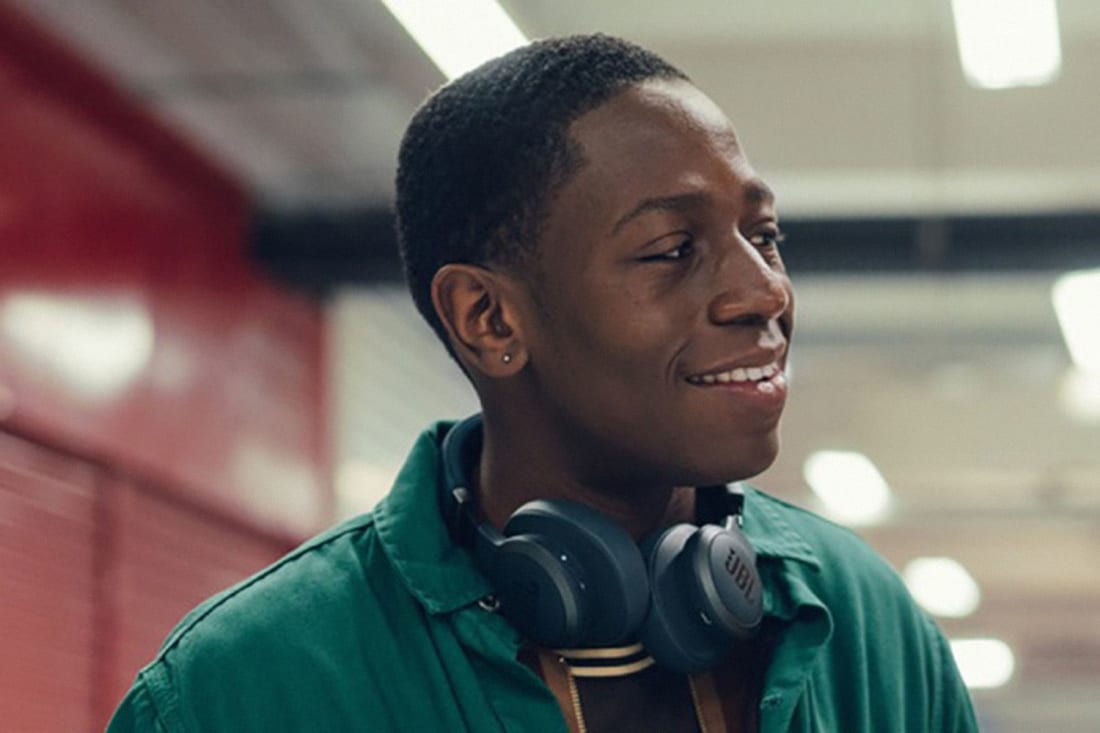self-love might look selfish sometimes – and that’s ok
Navigating the complicated boundary between selfless and selfish
Navigating the complicated boundary between selfless and selfish
This article is part of THE WOONIVERSE ACCORDING TO... Jamie Flatters.
Lately, I’ve been spending more time alone. I relish the weekend stretching out ahead of me, knowing I can mould it into whatever shape I like. I put my phone on do not disturb. I go for long runs. I write things that I have no plans to publish. This feeling is relatively new, not because I didn’t enjoy my own company before, or because I got bored easily, but because it felt selfish spending so much time on activities that were just for me.
When we talk about self-love, we’re always quick to point out how it isn’t the same as being selfish. And it isn’t, but that doesn’t stop feelings of guilt creeping in when we choose to put ourselves first. Research suggests that self-love can lead to more motivation and increased self-awareness, both of which could improve your relationship with others as well as yourself. We’ve come a long way in eroding the stigma associated with self-love, but old thought patterns die hard. We advise loved ones to look after themselves and practise self-care, so why do we struggle to follow our own advice? Perhaps you’re worried that other people might think you’re being selfish or maybe you’ve spent your life trying to please others so pleasing yourself feels new and uncomfortable.
For years, I rejected the natural introvert in me, believing that if I didn’t say yes to every single invite, then I wouldn’t have any friends. Not having plans used to terrify me for the same reason. If I wasn’t busy on Thursday, Friday and Saturday night then I took it as evidence of my friendlessness. I used to challenge myself to say yes to everything, but I never thought about challenging myself to say no. Particularly after the pandemic, I made a conscious effort to make my social life as busy as possible. I’d already missed out on so much socialising in my early 20s. But two years later, what was supposed to be fun had left me feeling burnt out, exhausted and overstretched.
I’m still hovering on the periphery of those feelings, worried that because I only say yes 80% of the time instead of 100%, my friends might think I don’t like them anymore. As a single person in my 20s, I don’t have a huge number of social or familial responsibilities. I call my mum on the phone. I reply to my friend’s messages. I try to show up to special events. Sometimes social media can be isolating, but I’m thankful to live in a time when it’s easier to stay in touch with people without having to physically meet up.
Avatar's Jamie Flatters explores the meaning of self-love in a new, three-part short film series.
Yet this constant availability means setting boundaries in friendships can be hard. Every few months, Twitter erupts into furious new discourse about what it means to be a good friend. It’s usually sparked by a screenshot of a conversation where someone has applied hyper-individualised therapy speak to one of their closest friends; something along the lines of, “I’m at capacity right now” or “I don’t have space to help you process.” To the sender, setting this boundary might feel like an act of self-love, but the cold, distant phrasing is likely to hurt the person on the receiving end. Self-love can lean into selfishness when we don’t consider the effects our actions could have on others.
We’ve all heard the phrase, “You don’t owe anyone anything,” but sometimes you do. We do have a responsibility to our friends. “Sometimes friendship and love is sacrificial,” says psychologist Anna Mathur, author of Know Your Worth and host of The Therapy Edit podcast “and we do things in order to support others and show them we care.” Sure, we don’t have to say yes to everything, but relationships are about reciprocation. Maintaining healthy relationships is also a form of self-love. Setting boundaries, however, is sometimes necessary, so how do you say no and preserve your time without hurting other people?
“Know that the more you give, the more you need,” says Mathur. “When you say ‘no’ to a friend or family member, offer a little bit of honest insight. Instead of saying, ‘I can’t because I’m busy that day,’ you could say, ‘I’m feeling really overwhelmed at the moment so I’m going to use that day to refuel’ or ‘I want to, but I’ve been feeling really socially anxious recently.’ These little insights of honesty open up dialogue and potential for support.”
Allow Avatar's Jamie Flatters to guide you in a calming hypnotherapy experience designed to help uncover a new level of self-love.
Do not listen/watch this while driving or operating machinery, only listen/watch in a place where you can fully relax safely.
You can’t control other people’s feelings or reactions. We’ve all hurt people unintentionally. What you can control is using self-love as a way to be a better friend. Giving love to yourself doesn’t mean you have less to give to others. If you’re constantly showing up to things you don’t want to go to, resentment could start brewing. Conversely, putting your needs, goals and happiness first can make you a better person to be around. You show up more fully for others when you’ve taken care of yourself. We’re not all walking around with a bucket of love that will run out if we put too much in one place. If you get a pet dog, for example, you won’t suddenly have less love to give your friends, but you might have to say no to plans to stay in and look after it. Therefore, our love isn’t finite, but our time is.
I spend a lot of time feeling anxious about time. It’s slipping through my fingers and I want to look back and be happy with how I spent it. I fantasise about a life where I can keep saying yes to hanging out and still have time to take care of myself and focus on hobbies and creative projects. I wish I could share stories over wine glasses until 5am and still go for a long run the next day. It feels like we can have anything, but we can’t have everything. There’s not enough time to be the best possible friend to others and still be a good friend to ourselves. I’ve been enjoying spending more time on my own, but if there were enough hours in the week, I’d still want to do it all.
I worry that my alone time seems selfish, but maybe self-love is about sitting with those feelings and being selfish sometimes anyway because a life without loving yourself would be miserable. “Feel the guilt and do it anyway,” says Mathur. “The sense of guilt often comes from a subconscious narrative of feeling unworthy. If you struggle with feeling guilty when you rest or engage in self-care, imagine that you’re plugging yourself in like a phone charger.” Learning to sit with those feelings of guilt is part of learning that self-love isn’t a fixed state. You don’t just reach it and then stay there forever. Taking a more neutral approach to your relationship with yourself can help take off the pressure. Think of it like any other relationship. You might feel angry or disappointed at times, but the love is still there.
It’s ok to say no, put your phone on do not disturb, rest when you need to and embrace your inner introvert. You can still show up for your friends by sending messages that show you’re thinking of them, making future plans for when you have the time and being truly present rather than forcing yourself to go to something when your heart’s not in it. Adult life can be isolating, no matter how much time you try to make for others. I miss the intense friendships that came from spending everyday together at school and uni even though they usually burnt out. Navigating the boundary between selfless and selfish is hard, but it’s possible to show others you love them without pouring so much time into those relationships that you neglect yourself.

Welcome to THE WOONIVERSE ACCORDING TO… Jamie Flatters. In this liminal space, we provide an individual a chance to reflect through creativity how to harness their own power to make a positive change in the real world around them. This time around sees Jamie and some of our writers reflect on the idea of self-love and what it means to them. There's even a relaxing hypnotherapy session if you're struggling yourself.



